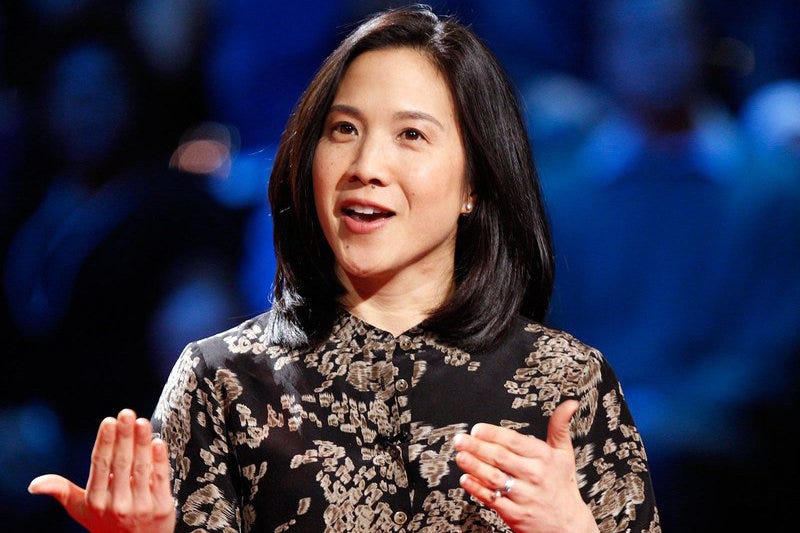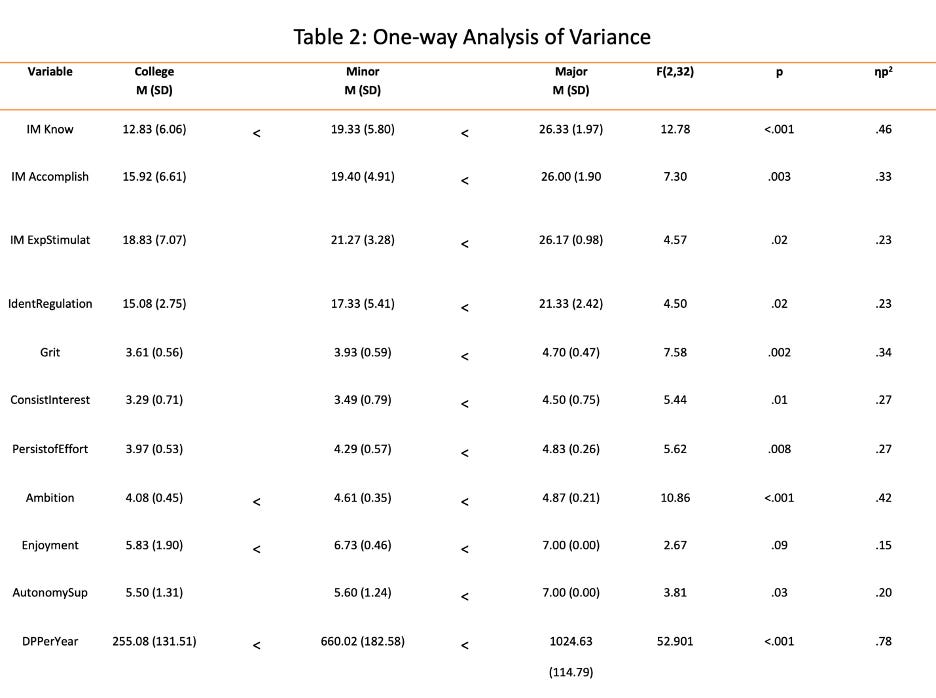To be a Good Leader, You Need to Have Grit. But Grit Doesn’t Come Easily
There are other traits required before you can truly have the grit necessary to succeed.
Life isn’t easy. And owning a business certainly isn’t easy. My grandmother always said, “If owning a business were easy, everyone would do it.” It’s a refrain often repeated in our family during tough times.
There are days, weeks, even months where business does seem easy. Everything is running smoothly, business is strong, cash flow is good, and everyone, from employees to customers to vendors, seem to be happy.
Then there are times that you feel ready to throw in the towel. We all have those. What leads someone to keep pushing on, while someone else in the same position might decide it’s time to go?

Thinking about this topic recently led me back to an old love in my psychology life: Angela Duckworth.
Duckworth is one of my favorite people in the psychology world. Not only is she a brilliant researcher and an incredible thinker, but there’s a personal connection as well: Duckworth was born in the same city as me, grew up in the same town as me, went to our local high school, and still resides in Philadelphia to this day. She’s a local girl!
Duckworth’s personal story is also extremely respectable. A daughter of Chinese immigrants, she joined famed consulting firm McKinsey after graduating from Harvard and receiving her master’s from Oxford. Shortly thereafter, she decided the consulting world wasn’t for her, and quit to become a high school math teacher. A few years later, she received her doctorate from UPenn, and is now a professor there. She became world-renown after a TED Talk of hers went viral, and she went on to publish a New York Times #1 Bestselling book, Grit: The Power of Passion and Perseverance. Her psychological research has been near and dear to my heart since I was first introduced to it as a teenager.
Initially, her research on grit started with a contract from the U.S. Army to determine what caused some cadets to attrit, while others stayed through the end of their training. She ultimately created what is now called the “Grit Scale”, a self-report survey that has up to twelve questions and helps determine someone’s level of passion and perseverance.
The idea of “grit” has taken on a life of its own in the years since Duckworth published her book. And it’s clear why. I highly recommend reading her book if you haven’t yet, but there are a couple quotes that really stick out to me all these years later. The first one is when she distinguishes between two people, one who says “I have a feeling tomorrow will be better” and the other who says “I resolve to make tomorrow better.” Two very similar, yet incredibly different ways of thinking. The second is when she writes, “Enthusiasm is common. Endurance is rare” This quote perfectly illustrates something I was trying to uncover many years ago.
Duckworth’s research played an enormous role during my senior year of college, when I spent two semesters on a senior thesis that explored talent development in sports and factors that lead to success. For months, I tested college hockey players at our school, minor league professional hockey players, and major league (NHL) hockey players,1 to see differences between each of their mental states. This year-long thesis ended with an hour-long oral defense and a 60-page paper, including eight pages of bibliography and multiple charts that boggle the mind, including this one:
Don’t worry. I still know what about 30 percent of that table means.
To be clear: my study had incredible limitations, including a small sample size and flaws in the design. So scientifically, you certainly cannot take my results and extrapolate them into a steadfast rule. But the results were indeed consistent with a lot of the existing research on expertise, including the traits that were most associated with reaching higher levels of success in a field.
In short, the research I did found that grit was one of the factors that best predicted talent development in sports. But perhaps more importantly, there were factors that specifically predicted grit, such as enjoyment and intrinsic motivation.2 In layman’s terms, you can’t just wake up and say, “I’m going to work my butt off to become an expert at [insert random activity].” That alone doesn’t create the grit necessary to become an expert. You need sincere enjoyment of an activity, as well as the proper motivation for wanting to better yourself at a specific task.
My ultimate goal, if I were to have continued this research past college, was to create a theory of talent development, using a hierarchy similar to Maslow’s. Unfortunately, I never did get the chance to move forward with the project, but I have always kept the lessons from that year in the back of my mind as I’ve worked to improve upon myself as a leader. The main takeaways were these:
If you want to become an expert at something, you absolutely have to have a level of enjoyment. That doesn’t mean every moment is enjoyable, but the activity as a whole needs to fill you with passion.
Once you have the requisite enjoyment, you need to be intrinsically motivated. Meaning you can’t be drawn to an activity because of the monetary reward, or renown, or social approval. You have to want to do it because you want to do it.
Once you have both of the aforementioned traits, you need to have a high enough level of grit so that you can push through any adversity, no matter how much of a roadblock it is. People with high levels of grit are willing to persevere when times get tough, but only when they truly love and enjoy it.
Think of it like a pyramid, with enjoyment at the bottom, then intrinsic motivation above it, then grit above that. You can’t have grit without the traits that come before it. At the end of the day, as a leader, you need to have the grit to get by tough times and difficult decisions. But that grit can only be present if you ensure the enjoyment and the intrinsic motivation remain as well. If the bottom of the pyramid disintegrates, the rest of it will crumble soon thereafter.
Which leads me back to my original question: what causes one leader to keep pushing on, while another leader might decide it’s time to go? To me, it all comes down to enjoyment, or to be more specific, passion. While the passion may not be apparent every day, a leader has to have the passion to push through those tough times. People around you can sense your passion, or lack thereof. If you have it, even if it’s not outwardly on display at a given moment, those around you will feel it. If it’s missing, they will also notice, and their own passion and dedication will suffer accordingly.
One of the hardest things to do, especially amidst a long career, is to keep that passion alive for your business. We all get stuck in the day-to-day grind, that oftentimes it’s hard to remember why we’re doing it. I have a few strategies of my own to try and rekindle that passion when I feel the light is dimming. Find your own strategies that help you get out of a rut.
Business isn’t always fun. Again, if it were easy, everyone would do it. But business also isn’t only enjoyable when it’s easy. It’s enjoyable when you have a purpose, you firmly believe in that purpose, and you commit yourself to chasing that purpose with a vengeance, each and every day, even if those days are filled with impossible challenges.
If your passion is consistently lacking, it’s a big red flag to take a step back and figure out if it’s only temporary, or something more permanent. You can’t lead without passion – and people won’t follow you without it.
One of the many perks of being involved in the hockey world during my college and post-college years was access to people who would allow me to do psychological testing on their professional players. Didn’t have that one on my childhood bingo card.
Intrinsic and extrinsic motivation are opposites – intrinsic motivation comes from within, where extrinsic is when you are motivated by external factors.



